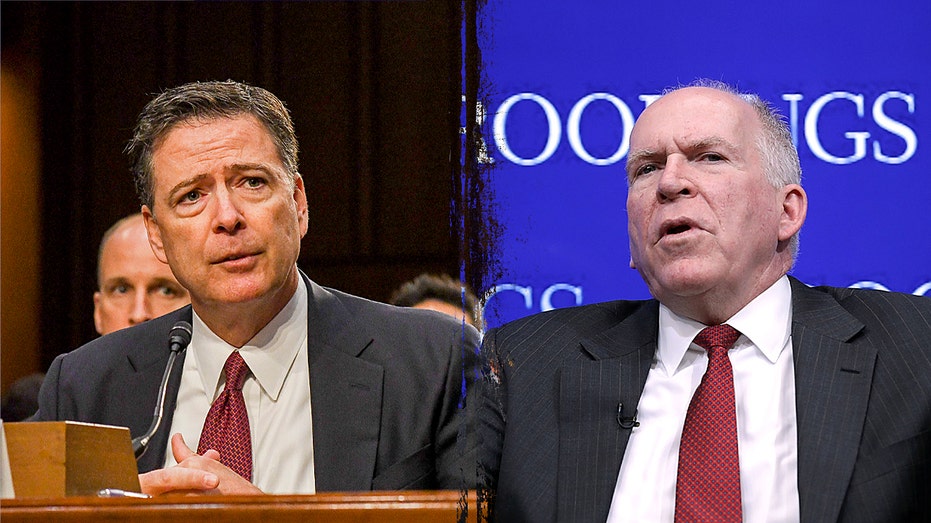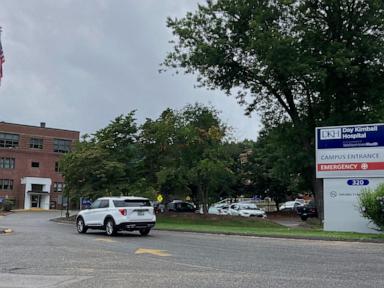The Trump administration is on an unbroken losing streak in the courts — 0 for 4 — in its effort to defend President Donald Trump’s executive orders targeting large law firms. And things could get worse — for Trump, and for the law firms that capitulated to him.
It has been several months since the first major law firm brokered a deal with Trump to get out from under an executive order penalizing the firm for conducting work or hiring lawyers that the White House disfavors. Eight firms followed that precedent in order to avoid becoming targeted themselves, ultimately committing a combined total of nearly $1 billion in pro bono legal services to largely unspecified initiatives supported by the Trump administration. Four firms refused to buckle and successfully challenged the orders targeting them in federal district court in Washington, D.C.
Trump’s executive orders and the deals struck by the settling firms have not aged well. The firms that threw in the towel appear to have misjudged the fallout — financial, reputational, political and legal. Meanwhile, the Trump administration has gotten hammered by the judges presiding over the cases challenging the White House, and it’s far from clear the government’s appeal will get a better reception in the higher courts, including the Supreme Court, if it gets there. Furthermore, the deals with the settling firms have so far produced scant results for the Trump administration in concrete terms.
Trump may see the episode as a political win, at least in the short term. He has publicly boasted about the deals for months and repeatedly said that he will put the settling firms to work for the administration. But there is no publicly available evidence that this has actually happened. Privately, representatives for three of the settling firms (who were granted anonymity to discuss sensitive internal matters) told me that they have not received any instructions or input from the White House on pro bono matters to take on.
The Justice Department declined to comment in response to a question about whether the department reached out to any of the settling firms to do pro bono work on behalf of the government. The White House also declined to comment.
That does not mean the firms who made deals with Trump are in the clear. The Trump administration could always change course.
On top of that, if Democrats retake the House or Senate next year, the firms could find themselves in the crosshairs of lawmakers who have already posed sharp questions directly to the firms about the legality of their deals and the circumstances that led to them. A few subpoenas could divulge even more sensitive and embarrassing details for the firms.
It’s hard to predict exactly how this surprising subplot in Trump’s second term ultimately ends, except that it is only likely to get messier, particularly if — or perhaps when — Trump decides to put the firms to work.
When the White House struck its first deal, Brad Karp — the chairman of Paul, Weiss, Rifkind, Wharton & Garrison — defended it by claiming that the firm had no choice because the order posed an “existential” threat to the firm and “could easily have destroyed” it.
This did not make much sense at the time given the fact that Paul, Weiss is one of the most profitable law firms in the world, but the defense now appears to have been rendered practically nonsensical by the fact that the four firms that challenged the Trump administration have not remotely gone out of business.
As a lawyer at one of those firms, who was granted anonymity because he wasn’t authorized to speak to the press, put it to me recently, “I’m pleased to confirm that [our firm] continues to exist — and flourish!”
The backlash to the deals in the legal profession has also been real. Some in-house client lawyers who are unhappy with the deals have reportedly been moving work away from the settling firms to the firms that went to court. Some students at the nation’s top law schools are steering clear of the settling firms, an embarrassment for firms that like to claim that they have the highest professional standards and best lawyers in the business.
Senior lawyers have also felt compelled to leave several of the settling firms. At Paul, Weiss, at least 10 litigation partners have departed, including Karen Dunn, a prominent Democratic lawyer who oversaw Kamala Harris’ debate prep last year.
Dunn had been in the running to succeed Karp as chair of the firm — a job likely worth tens of millions of dollars a year — and she reportedly supported the deal with the Trump White House and helped whip up support among other attorneys. Her decision to leave despite all that is further evidence that the decision to cut a deal had become professionally and politically toxic in a way that many did not anticipate — particularly for a firm that has long held itself out as an institution committed to liberal values. (As a former attorney at Paul, Weiss, I can attest that this commitment is very dubious indeed.)
If you want to be a White House counsel or a lawyer with a major position in a future Democratic administration, having Paul, Weiss on your resume may now be a liability for the foreseeable future. Case in point: Neera Tanden, one of the Democratic Party’s most prominent officials, said in a social media post in May that “Paul Weiss’ actions will live in infamy.”
The settling firms have even appeared to incur blowback from the judiciary.
When Beryl Howell, the judge presiding over the challenge from the law firm Perkins Coie, ruled against the Trump administration, she dropped a footnote dripping with contempt that quickly made the rounds among legal observers. “If the founding history of this country is any guide,” Howell wrote, “those who stood up in court to vindicate constitutional rights and, by so doing, served to promote the rule of law, will be the models lauded when this period of American history is written.”
For his part, Karp — who once positioned himself as a legal power broker within the Democratic Party but is now blamed for creating a template for surrender that other firms followed — risks becoming the Baghdad Bob of Big Law in his efforts to defend the deal.
In addition to the over-the-top claim that the firm’s deal with the White House was an “existential” necessity, he recently told a gathering of the firm’s lawyers that it “has never been healthier” and that the first wave of departing lawyers was no big deal because the lawyers constituted a “siloed unit” at Paul, Weiss, a highly questionable claim. In any event, prominent lawyers across the litigation department have continued to leave the firm as recently as this week.
In fact, Paul, Weiss and the other settling firms may also have long-term legal exposure under federal law and professional rules of conduct, at least in theory.
The deal that Paul, Weiss struck appears to implicate a variety of federal and state public corruption statutes, including federal bribery and extortion charges. That is what happens when you agree to give a public official tens of millions of dollars in value in exchange for official actions that benefit you — in this case, an executive order that rescinds a prior executive order and the restoration of federal security clearances, among other accommodations. (The legal situation is plausibly different for the firms that entered into follow-on settlements, who have a stronger claim to having been the victims of an extortion effort.)
And while Trump is immune from criminal conduct stemming from official actions, that does not extend to the firms themselves.
It’s true that a subsequent Democratic administration will probably not investigate or prosecute any of the firms or the lawyers involved. But that assessment primarily reflects political considerations — as well as the recent history of a party populated by lawyers with demonstrably poor judgment in the area of legal accountability — not the law.
Setting aside the headlines and Trump’s public gloating, it’s hard to see what exactly the White House has gotten out of all this so far — at least in tangible terms.
The settling firms have insisted that they retain control over their pro bono work, and thus far, there has been no public indication that the White House has directed them even informally to take on any particular engagements.
Some of the firms do appear to be making subtle changes to their pro bono portfolios without hearing from the Trump administration. Not surprisingly, firms appear to be pulling back on pro bono immigration work. I also have heard that some conservative legal advocacy groups have fielded calls from lawyers at the settling firms about finding pro bono cases to partner on.
At this point, the risk of being put to work by the administration is the most potent near-term threat to the settling firms.
That shoe may or may not drop, but if the White House insists that they take on a case on behalf of the administration or its political agenda, the firms will be faced with the choice of caving (again) and incurring further political and reputational harms, or antagonizing the White House to the point that the administration goes back to issuing executive orders and sanctions targeting them.
This might be less dramatic than it sounds. If any of the deals were to fall apart in that way, the settling firms would — ironically perhaps — end up benefitting from the firms that refused to give in to the Trump administration. That’s because if they ultimately needed to mount their own challenges to the administration, they would likely point directly to the four decisions already rendered against the administration to back them up.
Those decisions have been swift and unsparing.
The principal evidence against the administration has been its own words — the executive orders and accompanying “fact sheets” released by the White House to justify them. Those documents have asserted a variety of grievances against the firms, from employing lawyers who criminally investigated Trump to implementing diversity, equity and inclusion programs.
As one district judge — a George W. Bush appointee — put it in a case involving WilmerHale, the executive order targeting the firm “is, on its face, retaliation for the firm’s protected speech.”
Suboptimal lawyering has been a recurring theme of the second Trump administration. Some experienced lawyers, for instance, believe that Emil Bove — the principal associate deputy attorney general and now a nominee to sit on the U.S. Court of Appeals for the Third Circuit — could have dismissed the criminal case against New York City Mayor Eric Adams without creating a weeks-long public spectacle.
You could make the same argument about Trump’s legal broadsides against Big Law. Trump and the administration could have put themselves on stronger legal footing — or at least delayed the swift procession of adverse rulings — if they had said much less and opted for vaguer language in their public statements.
Instead, they said the quiet parts out loud, and the judges have been throwing that language right back at them.
As a result, the government’s odds in an appeal before the D.C. Circuit Court of Appeals are not particularly good. And if the administration loses there, it is unclear whether the Supreme Court would take the case or side with Trump on the merits. After all, the justices are all lawyers who should presumably be attuned to the serious professional concerns raised by Trump’s orders. (For what it’s worth, Chief Justice John Roberts’ wife happens to be a prominent law firm recruiter.)
There is a sense among some of the lawyers at the settling firms that this will all blow over. Trump and his administration got the political scalp they wanted, the thinking goes, but they are not particularly good at executing complex policy initiatives — like completing 90 trade deals in 90 days or finding a buyer for TikTok that will actually comply with the law that Trump decided to ignore after reentering office.
Democrats in Congress may confound that expectation if they win back power and opt for a fulsome investigation into the deals, potentially with subpoenas.
“The American people and the Congress deserve complete transparency into Trump’s assault on free speech, the right to counsel, due process and access to courts,” said House Judiciary ranking member Jamie Raskin of Maryland, who is already conducting an investigation into the deals along with Democratic Sen. Richard Blumenthal of Connecticut. “We also should know who stood up and who capitulated to Trump’s gangster moves to crush his opposition, co-opt all the lawyers and neutralize the courts. We’ll keep demanding answers until the truth is known.”
Still, Trump has not gone away empty-handed, even now.
For years, some prominent Big Law lawyers have tried to soften the industry’s image by positioning themselves as reliable allies of progressive initiatives like DEI policies and as principled litigators willing to oppose their own government. This has in large part been a marketing exercise — large law firms make their money by serving wealthy and powerful private interests and, to take just one example, racial and ethnic diversity among law firm equity partners remains truly abysmal — but Trump managed to blow up that image with the literal stroke of his pen.
The deals, in that sense, are just as important for their symbolism as their practical impact.
One of Trump’s skills in politics is his occasional ability to demonstrate the hollowness of his opponents’ stated convictions. He appears to have pulled that off yet again.
.png)














 English (US)
English (US)